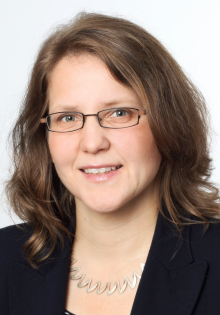Researchers from Paderborn University are involved in the ‘Quantum Secure Networks Partnership’ project (QSNP). The joint goal of more than 40 partners from science and industry is highly secure data transfer, achieved using quantum cryptography. The project, which is been funded by the EU for a period of three and a half years with a budget of 25 million euros, launched on 1 March.
The topic of data security is becoming increasingly important in our ultra-modern society. Digital communications are an inextricable part of our professional and private lives: we share information (sometimes even internationally) using a wide range of devices and networks. Some of this data is highly sensitive and needs to be protected. The more powerful our computers become, the more robust the encryption processes used to protect our information need to be. Next-generation protocols based on quantum cryptography methods offer previously unattainable levels of data security. For example, quantum key distribution (QKD) technologies based on the fundamental principles of quantum mechanics are enabling tap-proof communications for the first time.
The EU-funded QSNP project is using QKD technologies to produce highly secure quantum communications networks – with strong involvement from Paderborn University. Researchers from the ‘Integrated Quantum Optics’ working group headed by Prof. Dr. Christine Silberhorn from the Department of Physics and Institute for Photonic Quantum Systems (PhoQS) are developing primarily integrated optical sources for quantum communications. Prof. Silberhorn describes the goal of Paderborn’s contribution: ‘As part of this project, we are developing new components that can subsequently be used by our project partners within network demonstrators. In doing so, we are seeking to help showcase new ways of producing more secure yet also more cost-effective systems.’
However, the project is also tackling existing networks: efforts are being made to integrate quantum cryptography methods into conventional telecommunications networks and enable increased security levels in traditional data transfer processes. The final step involves transferring the technologies developed across to specific use cases, and for example using them to protect critical infrastructure or for clock synchronisation. In addition, the aim is to open up new sectors that current technology has not yet reached.
The Quantum Secure Networks Partnership is part of the Quantum Technologies Flagship, a European collaboration initiative for research and development activities relating to quantum technologies. Following the recently completed initial phase, with strong involvement by numerous working groups from Paderborn’s Institute for Photonic Quantum Systems (PhoQS), the Flagship is now entering the second phase where the developments are to be transferred into practice. The QSNP project, coordinated by the Institute of Photonic Sciences (ICFO) in Barcelona, offers the ideal platform for this transfer: key academic players are collaborating with partners from technology and industry, including network integrators and telecommunications operators. The project partners are meeting in Barcelona for the first time at the end of April.



